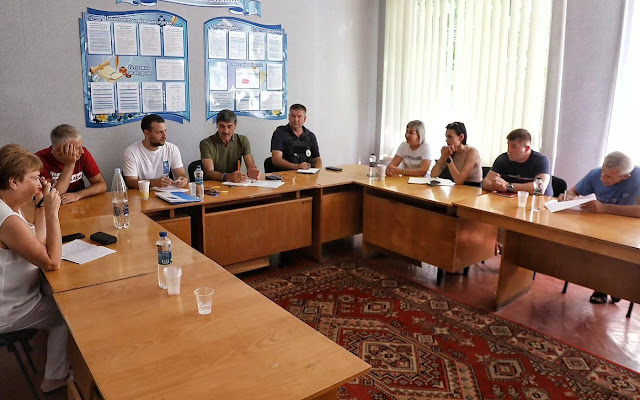In the Stanislav community, a meeting of the working group on public safety and recovery was held with the participation of the chief and representatives of the military administration, the local fire department, the departments of education, culture, youth, sports, architecture of the village council, the precinct police officer, and elders.
The meeting discussed the community's problems and voiced desired initiatives in public safety and recovery. In particular, issues were raised regarding establishing a community officer's room, providing the police with vehicular support, restoring the video surveillance system in populated areas to prevent crimes, creating a safety center, and equipping the local fire department.
The need for the establishment of bomb shelters in the near future, mobile educational hubs, and centers for psychological assistance and relief for children and parents was also discussed.
The participants stated that there is a shortage of personnel in the community, and residents do not want to go to work; although there is work. The extensive mining of the territory also creates great risks for life, and repairing and restoring destroyed social facilities, such as surgeons and obstetric сenters, schools, etc., needs great funding. Also, launching a warning system is expensive. Still, it is necessary to inform the population about the missile threat, and in general, many do not have the Internet, and people continue to be cut off from information.
The working group decided to prepare project proposals for financing mini-initiatives in public security that UNDP can support.
Recently, a working group was held in the Chornobaivka community, where projects were also prepared and submitted for funding. The State Emergency Service Department in the Kherson region has already received a drone to survey mined areas.
Six working groups on public security currently operate in the Kherson region. They were created within the framework of the initiative "Kherson region: public security and recovery in conditions of change" implemented by the "Union" Foundation with the assistance of the United Nations Development Program (UNDP) in Ukraine with the financial support of the Government of Denmark, provided within the framework of the UN Program for Reconstruction and Peacebuilding.
The UN Program for Reconstruction and Peacebuilding is implemented by four UN agencies: the United Nations Development Program (UNDP), The United Nations Entity for Gender Equality and the Empowerment of Women (UN Women), the United Nations Reproductive Health Agency (UNFPA) and the Food and Agriculture Organization of the United Nations (FAO).
Eleven international partners support the program: the European Union (EU), the European Investment Bank (EIB), the US Embassy in Ukraine, and the governments of Denmark, Canada, the Netherlands, Germany, Poland, Switzerland, Sweden, and Japan.






